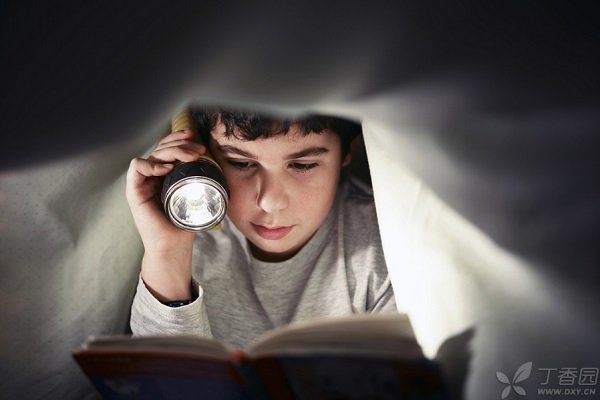
The widespread use of electricity has enabled human beings to get rid of the restriction of natural light and start a chapter in nightlife. At the same time, it has also given birth to a life style that reverses day and night. At the same time, there are more and more health problems such as staying up late, insomnia and listlessness.
Are you also a [night owl], and are you tired of other people’s preaching about [going to bed early and getting up early]?
Regular life is paramount.
Before discussing the question of whether it is better to go to bed early and get up early, or whether it is better to go to bed late and get up late, it seems that everyone has reached a consensus that no matter in the morning or evening, we should be regular.
Regular and adequate sleep, It is inseparable from the strength of the body. The neuroendocrine laboratory of Rockefeller University has done experiments, Mice were placed in a 20-hour cycle of alternating light and shade, and their metabolism, spirit and behavior were evaluated over 10 weeks of the experiment. Researchers found that mice that were disrupted were more likely to be mad and impulsive than mice in the natural environment.
Further experiments have found that irregular work and rest have an impact on all systems of the whole body. Whether it is lack of sleep or irregular sleep, the impact on physical health is huge and lasting.
What are the effects of irregular sleep on health?

1. Short-term memory decline: Forget to bring the key, forget to lock the door, forget to turn off the gas, forget to pay the phone bill, these are all manifestations of short-term memory decline.
2. Decline in learning ability: Mice with irregular sleep have worse ability to obtain food through organs; People who sleep irregularly naturally suffer from poor learning ability due to decreased attention and memory.
3. Endocrine system disorders: The reason why this happens is that the body’s life rhythm center changes, the secretion of various hormones becomes unstable, and the metabolic rate changes accordingly. It is possible that in a very short period of time, the body weight suddenly rises or drops obviously. For girls, this may be due to the rough skin and acne (androgen’s [credit]).
4. Increased risk of heart diseases: endocrine is a cause and hormone regulation is disordered; On the other hand, the autonomic nervous system has also become unstable and sinus tachycardia may occur, making you always feel that your heart beats fast or your chest is stuffy.
5. Decline of immune system function: The most obvious manifestation is upper respiratory tract symptoms, For example, cough and expectoration, because the stress system related to adrenocortical hormone, that is, locus coeruleus sympathetic adrenal axis, can inhibit the function of the immune system. For a long time, not only minor diseases continue, but also more serious diseases such as cancer may come quietly, because killing abnormal cells is one of the most important functions of the immune system.
[Time Service Factor] Affects Our Life and Rest
When it comes to going to bed early and going to bed late, we must mention a new concept: Zeitgeber.
[Timing Factor] is a signal from the external environment, which can synchronize the circadian rhythm in an organism with the external 24-hour or 12-month cycle.
Common timing factors include light, temperature, social activities and drug regulation. All the above changes in environmental signals will affect human circadian rhythm. The change of human circadian rhythm has a series of more far-reaching effects on the body. This is a so-called “waterfall effect”, just like the “chain reaction” that contributes to the atomic bomb explosion. Specifically, it is the change of “timing factor” that has contributed to the above-mentioned various disorders of the human body.
As you suspect, each person’s living environment is different, so the timing factors are also different. The lifestyles of different groups are very different. Can a standard lifestyle be used to stipulate the so-called “healthy lifestyle”?
This is obviously extremely difficult and even unrealistic.
The truth is that due to the differences in [timing factors] between individuals, everyone’s circadian rhythm is also undergoing changes.

For example, some studies have found that for children, the time when the correct rate of doing math exercises is the highest in the morning, while for young people, the peak of math ability is at night. Due to the different living environment between children and young people, the circadian rhythm is also different.
For example, in another interesting experiment, researchers irradiated mice with strong light from time to time in the morning. As a result, the time for mice to fall asleep and wake up was significantly earlier.
In other words, no matter you go to bed late or early, you must be regular. Even if you stably turn the whole work and rest cycle upside down, it is better than going to bed late one day and early one day.
As long as it is regular, is it the same to go to bed early and late?
Seeing this, do you feel that you have mastered an excellent excuse to stay late and can adjust your work and rest rules without scruple in the future?
Unfortunately, no.
Let’s return to the [timing factor]. Any change in light and temperature can affect the circadian rhythm. So, when you stay up late and then don’t sleep for a few hours, the day starts to light. At this time, your biological clock starts to confuse: Isn’t it just dark? Why is it dawn again?
As a result, melatonin secretion, which controls biological rhythm in your body, begins to be disordered. One after another, your endocrine, autonomic nervous system, emotion and cognitive ability are all confused. That’s why you feel discomfort all over your body. In the long run, more serious problems will come.
Yes, I said before, it is difficult to set [relatively standard] work and rest time, but natural light and temperature are difficult for you to control. Under the double influence of artificial and natural light sources, people are prone to circadian rhythm disorders.
Unless you can completely isolate the natural environment from the light, temperature and other conditions that change with day and night and the four seasons, you’d better work at sunrise and rest at sunset.
Must stay up late, what should I do?
In some people, staying up late is often helpless, such as night shift workers. Under such circumstances, how can we get high-quality sleep?
1. Most importantly, you need a warm and comfortable environment without too much psychological pressure.
Someone has studied it, When a person is asleep, Will lose control of almost all muscles, This is also why human beings cannot spend the night on trees or cliffs. To make up for this defect, Our ancestors used to live in groups to form a social system to fight against predators. They gained a sense of security through social belonging and social ties. This kind of human nature continues to this day. If social pressure is too great, people will feel that sleep is also threatened. At any time, stable and comfortable social relations can help you sleep safely.
2. At the same time, you also need to isolate external light sources as much as possible to ensure constant indoor temperature. In short, reduce the influence of external timing factors.
There is no need to repeat the function of timing factors. All kinds of timing factors should minimize interference when you fall asleep. Keep your biological rhythm stable.
3. In addition, the balance and abundance of external nutrition, regular physical examination in the hospital and sufficient outdoor exercise can all become a strong guarantee for high-quality sleep and physical health.
At the end of the day, people are social animals after all. You can isolate yourself from light and temperature, but can you live independently of society?
Therefore, staying up late is not a long-term solution after all. Cherish life and stay away from staying up late.
This article is exclusively authorized by the author to be used by Clove Garden and refuses any other form of reprinting.
